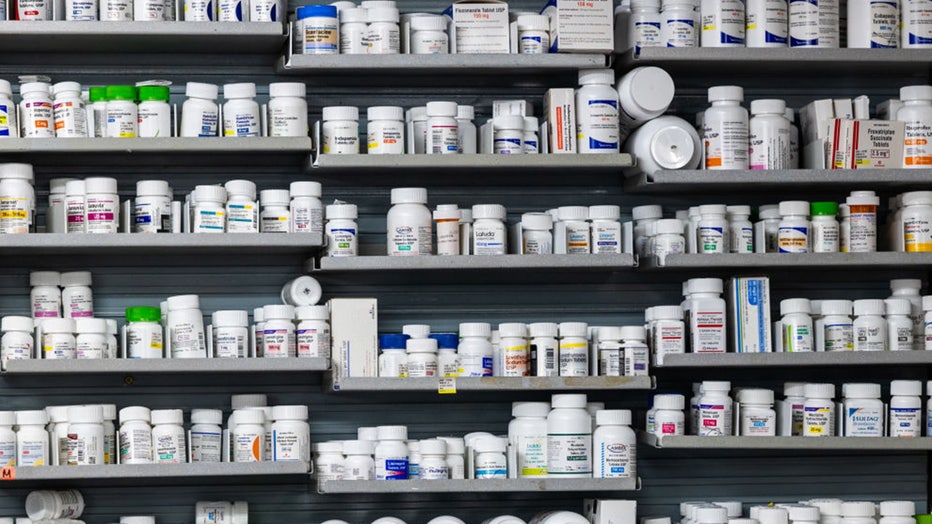Trump executive order targets prescription drug prices
HHS Sec. RFK Jr. speaks in Indiana
INDIANAPOLIS, INDIANA - U.S. Health and Human Services Secretary Robert F. Kennedy, Jr., and Centers for Medicare and Medicaid Services Administrator Dr. Mehmet Oz join Indiana Governor in a Make Indiana Healthy Again initiative media event.
WASHINGTON - President Donald Trump signed an executive order on Tuesday that directed his health department to work toward lowering the price of prescription drugs.
The order calls for lowering the price of Medicare prescription drugs and providing "massive discounts" to patients with low-income for life-saving medication.
What does the order say?
Dig deeper:
The order instructs the Department of Health and Human Services (HHS) to standardize Medicare payments for prescription drugs, including those used for cancer patients, no matter where a patient receives treatment. This could lower prices for patients by as much as 60%, according to a White House fact sheet.
Likewise, the order calls to match the Medicare payment for certain prescription drugs to the price that hospitals pay for those drugs, up to 35% lower than what the government pays to acquire those medications, the White House said.
The order also calls for lowering insulin prices for low-income patients or those who are uninsured to as little as 3 cents and injectable epinephrine for treating allergic reactions to as low as $15, coupled with a "small administrative fee," according to the fact sheet.
Additionally, the order aims to lower states’ drug prices by "facilitating importation programs that could save states millions in prescription drug prices," as well as bolstering programs that assist states secure deals on sickle-cell medications in Medicaid, the fact sheet said.

FILE - Prescription drugs are displayed at NYC Discount Pharmacy in Manhattan on July 23, 2024 in New York City. (Photo by Spencer Platt/Getty Images)
Biden-era prescription drug price negotiation
Trump’s order called on the HHS to seek comment on the Biden-era Medicare Drug Price Negotiation Program.
"We are confident we will eclipse the savings the Biden administration achieved in the first year," an official told NPR.
The backstory:
The Biden administration authorized the Medicare Drug Price Negotiation Program under the Inflation Reduction Act and allows Medicare to directly engage in hashing out prescription prices with drug companies.
Medicare negotiated the price of 10 drugs in 2024 and another 15 will will be negotiated this year.
Will tariffs impact drug costs?
Big picture view:
Trump’s 145% tariffs on Chinese imports could mean that health care costs are more susceptible to price increases.
Market research group Black Book Research found that 84% of experts predict that prices for medical treatments and drugs will rise due to the tariffs, according to a survey released in February.
Trump signaled Monday that tariffs on the pharmaceutical sector were headed down the pipeline.
What they're saying:
"We don’t make our own drugs anymore," Trump told reporters Monday. "The drug companies are in Ireland, and they’re in lots of other places, China."
The Source: Information for this article was taken from a White House Fact Sheet detailing the executive order he signed on April 15, 2025. Reporting from NPR, FOX News, The Associated Press and LiveNOW from FOX also contributed. This story was reported from Los Angeles.

